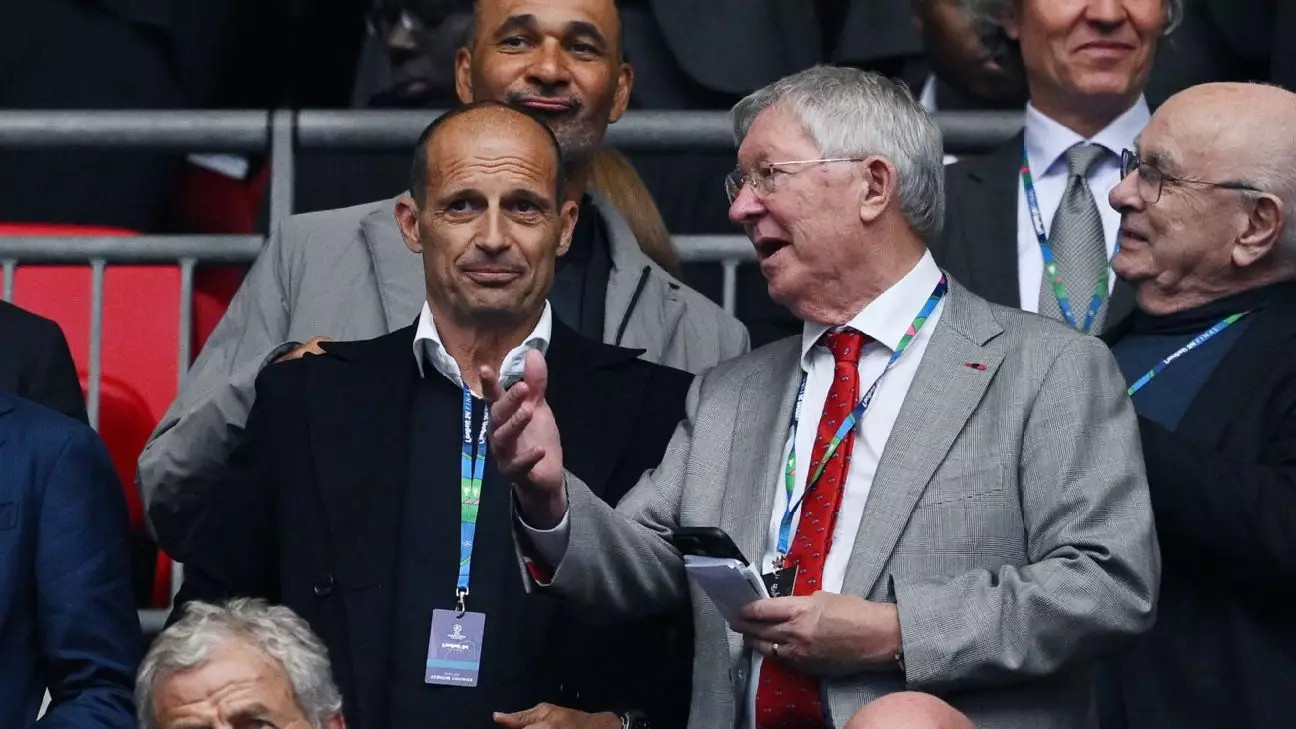Sir Alex Ferguson, one of the most revered figures in football, has recently shared a deeply personal insight into his life after departing from his managerial role at Manchester United. Eleven years post-retirement, Ferguson, now 82 years old, acknowledges that there are fleeting moments when he longs for the thrill of his former position. In a candid interview with the BBC, he reminisced about his tenure, illustrating how the allure of high-stakes football still tugs at his heartstrings.
Ferguson’s departure from the Old Trafford sideline marked the end of an era defined by unparalleled success and legacy. His final season, 2012-13, culminated in a dramatic reclaiming of the Premier League title from rivals Manchester City, sealing his status as a club legend. However, even after such a sterling career, the emotional connection to the sport remains powerful. The iconic manager revealed that the first year following his retirement was particularly challenging. Attending a European final, he found himself lamenting the absence of that adrenaline rush, confiding to Cathy, his late wife, about the void left by the big matches.
The Relentless Passion for Football
Ferguson’s attachment to the game speaks volumes about the passion often embedded within a manager’s DNA. The thrill of European games, encapsulated by intense competition and the bright lights of stadiums, represents not merely a career high for Ferguson but a fundamental element of his identity. Each European Final he attended post-retirement fortified his connection to the sport, a reminder of what it meant to lead a team amidst high-pressure situations. His comments hint at the nostalgia that accompanies life’s later chapters, particularly when intertwined with such monumental achievements.
The sheer volume of trophies amassed during Ferguson’s reign—13 league titles, two Champions League wins, five FA Cups, and four League Cups—paints a picture of unmatched triumph that casts a long shadow over the subsequent management era at Manchester United. The string of managers that followed, including David Moyes, Louis van Gaal, Jose Mourinho, Ole Gunnar Solskjaer, and currently Erik ten Hag, have struggled to replicate or even come close to Ferguson’s remarkable success. This inconsistency has plagued the club, creating a nostalgia-fueled narrative around Ferguson’s legacy.
The Future of Manchester United
As Manchester United prepares for upcoming fixtures, such as their match against Crystal Palace at Selhurst Park, the discussion around Ferguson inevitably resurfaces. The longing for a return to the glory days—a theme echoed frequently among fans and pundits—captures the ongoing struggle to rebuild a club that once epitomized excellence. The challenges faced by the club in this current post-Ferguson chapter illustrate the difficulty of managing expectations and restoring a heritage.
In the grand tapestry of football history, Ferguson’s reflections serve as both a testament to his unique journey and a sobering reminder of the fluctuating fortunes of sporting institutions. While modern managers aim to carve their own identities in the shadow of Ferguson’s legacy, the quest for relevance and stability at Manchester United continues to be a conversation filled with complexity and emotion. In a sense, Ferguson’s wistful memories reflect not only his personal journey but resonate with the collective yearning of a fanbase craving a return to the heights once reached.

